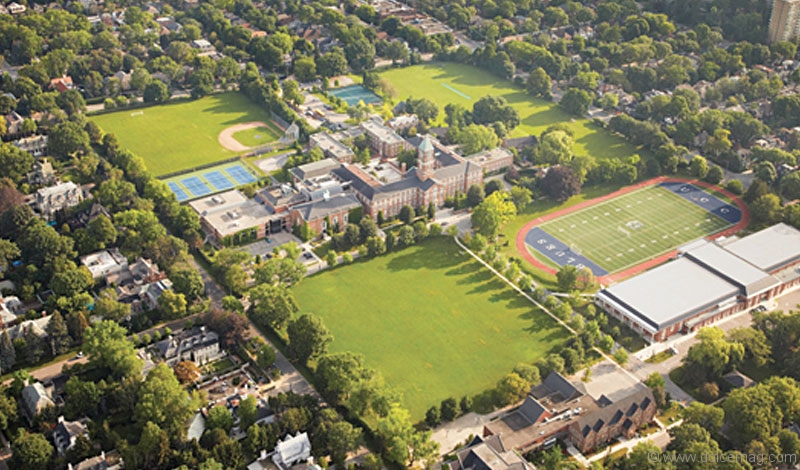On Humility
Raising kids without a sense of entitlement.
Success is a double-edged sword. You work hard to give your children the best opportunities in life, then worry they might develop a sense of entitlement. So what’s the magic formula for raising privileged children who, nevertheless, have learned such desirable character traits as humility, gratitude and consideration?
Here at Upper Canada College we know the sting of being branded “elitist.” We may see ourselves in a different light, an elite school certainly, but not elitist. And while privately we might find solace in our socio-economic diversity and our commitment to service, those things don’t always make headlines. As a student once told me, “No matter what we do, we’ll always be seen through the shadow of the clock tower.” If that student is right, I want to offer five tips for raising children without a sense of entitlement.
1) If entitlement is our original sin, then we should do everything we can to counter any sense of collective arrogance. Start small. At UCC, that means if a student sees a stranger in the foyer who looks a little lost, stop and ask if they need some help. Take the time to walk them where they need to go. Little things mean a lot.
2) Consider Tom and Daisy Buchanan from The Great Gatsby. “They were careless people, Tom and Daisy. They smashed up things and creatures and then retreated back into their money or their vast carelessness or whatever it was that kept them together and let other people clean up the mess they had made.” I know adolescence can be a sloppy stage of life — but it says all the wrong things if you go Tom and Daisy on us and let other people, especially those you might consider lower on life’s ladder, clean up the mess.
3) Extend yourself. My advice to an introverted graduate heading to a very selective university was this: if you don’t greet people warmly, you run the risk of being perceived as aloof. Because he’d been at UCC for years, people accepted him for who he was. In a new environment, where people don’t know you and all they perceive is that you are part of an exclusive club, your reticence might be misinterpreted. Push yourself just a bit to connect with others.
4) The most effective antidote to arrogance is a sense of humility. Eventually life teaches every one of us the centrality of this virtue. We all
age, and fail, and fall apart, and lose friends and games and jobs and teeth and hair and so much more. The best people learned humility early in life and they avoided what author Walker Percy once called the “great suck of self.” Alice had to be small to enter Wonderland. We’re each just a small part of the grand landscape of humanity around us.
5) Finally, don’t forget to say thank you. It won’t radically alter the fate of Western civilization. The Leafs still may not make the playoffs next year. But
it’s the little things that make the big things happen.
Guest Parenting Editor
Dr. Jim Power is the 18th principal of one of North America’s leading boys’ schools, Upper Canada College, a position he’s held for over a decade.
Dr. Power holds a master’s degree in teaching from Boston College as well as an EdD in educational leadership from Boston University. At UCC, Power helps guide his students in the development of mind, body and spirit so they become men of conscience, courage and compassion.
www.ucc.on.ca


















































































No Comment